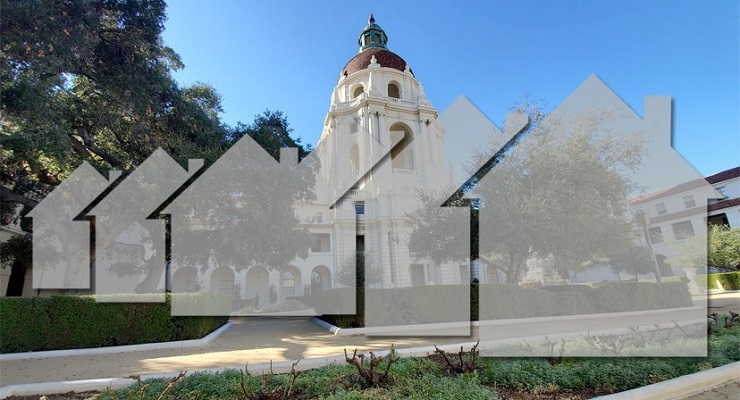
An item on Monday’s council agenda is an early step in the city’s efforts to establish a cannabis social equity program.
The city is one of five jurisdictions to receive a $75,000 grant from the governor’s office of Business and Economic Development (GO-Biz) to conduct a cannabis social equity assessment and/or program development.
The purpose of the program is to advance economic justice for populations and communities harmed by cannabis prohibition by providing support to local jurisdictions as they promote equity and eliminate barriers to entry in the regulated cannabis industry for their equity program applicants and licensees.
In January, a cannabis business incubator was organized in anticipation of the city implementing a social equity program for cannabis licenses.
Pasadena Incubator would provide funding to social equity applicants granted the city start its social equity program.
“The city said that in April they would create a social equity program,” said Shaun Szameit, “So this is the precursor, they got the funding from the state to create the program. So now I expect them to have city meetings analyzing and adopting a forthcoming social equity ordinance.”
The city began its cannabis program several years ago, and like many other jurisdictions had no social equity program in place.
Despite the lack of social equity program the city has already amended its cannabis ordinance to allow more businesses in District 3.
In January, the city selected a consultant to complete the cannabis social equity study. Botec Analysis, whose staff have completed cannabis social equity assessments for various other jurisdictions throughout the state will return to the City Council with findings of an assessment by late Spring.
Szameit said that local cannabis operators are looking forward to a social equity program.
“We’re very excited about the anticipation of a social program. And we look forward to the city, you know, righting their previous wrongs and putting together a program that actually is awarded to the locals and is sensible,” Szameit told Pasadena Now.
The city has already taken some action.
When former Los Angeles County District Attorney Jackie Lacey secured the dismissal of 66,000 marijuana-related convictions in 2020, the city prosecutor’s office authorized the district attorney to dismiss 250 local cases.
African Americans and Latinos bore the brunt of law enforcement actions for cannabis activities for decades and in many communities they are being aced out of the economic advantages from selling cannabis legally.
President Richard Nixon used the so-called war on drugs to vilify antiwar advocates and young Black people, two groups that strongly opposed him, according to John Ehrlichman who served as Nixon’s counsel and was an assistant to the president on domestic affairs.
By the early 1980s, President Ronald Reagan signed the Comprehensive Crime Control Act in 1984, which established mandatory minimum sentences and expanded other penalties as his wife adopted the policy as a pet project.
“We demanded social equity from the very beginning in the cannabis industry process in Pasadena because it was the only way to ensure some semblance of justice for the draconian policies and evil decisions that had been exacted upon brown and black neighborhoods and communities under the umbrella of the war on drugs. There was never a war on drugs. There war was on people of color and the poor,” said Councilmember John Kennedy.
“No matter how articulate or justifiable our arguments, City staff would not be convinced that the legalization of cannabis presented an opportunity for some African American or LatinX owned small cannabis operators/retailers to have an opportunity to join mainstream business and become entrepreneurial titans of industry in our capitalistic enterprise system.”
Kennedy said Black- and Brown-owned businesses have been shut out of the cannabis opportunity in Pasadena under the belief or fear that they could not perform or handle the business without still engaging in some kind of quasi-criminal activity or that they were simply not ready or prepared.
“The fact of the matter is Black and Brown business teams are more ready than ever to soar when the shackles of illegal bank lending, ignorance, prejudice, and unfairness are removed from the equation,” he said.
“This is true in the legal cannabis industry, but also in all industries where women, minorities and the poor find barriers to entry, roadblock to the American Dream.”














 0 comments
0 comments


